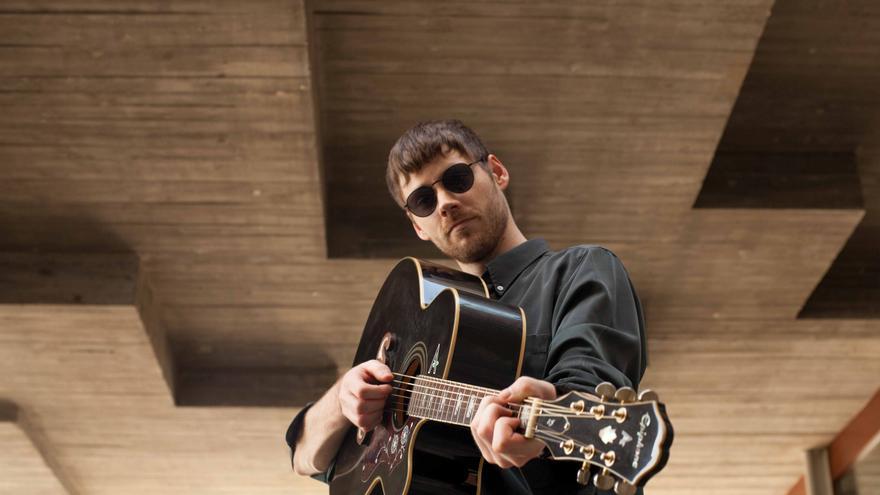Life – and his is not without script twists – has led Timms to make Vigo the point from which to move forward in his “little by little route”, a more suggestive way of verbalizing the “match by match” of cholismo. The step he is now taking is to finance his debut album, recorded in 2019 at the Ancestral studios in Soutomaior and which includes 10 songs developed over a decade. For this, it has activated a crowdfunding through its website (www.adriantimms.com) that allows it to underpin its plans. Among the most striking rewards, that of teaching to play one of the songs of Part Won.
The album will be released in full on Spotify and other digital platforms on April 19, but a couple of previews are already available, ‘Till you come knocking’ y ‘Dead-Lines’, the latter accompanied by a beautiful video clip shot in the Galiñeiro days after the catastrophic wave of fires in 2017, with the earth still smoking. He wrote that song about the human need for union with the migration crisis and environmental debacles in the head, but some of his verses fit the pandemic context. “Everyone gets ahead and that’s fine, but know that we will all play something “, they pray their verses. “Wow, it has touched us!”, He adds about the emergence of COVID-19.
The video for ‘Dead-Lines’ is the work of Alba Escudero, responsible for the entire visual concept of the project (photography, web design). And the reason why Timms landed in Vigo in 2016. But to understand the vital vicissitudes of the Swindonian, we must go back to the beginning of this century. His mother decided to start a new life with her children in El Colorado, a small town in Conil de la Frontera. “It was a culture shock,” he recalls. Then he jumped to Madrid, where he began engineering studies that, knowing that his was music, he abandoned to train as a sound technician and producer. He started his first bands and made his first forays as a busker. He was in those ways when he came to Vigo to take a course. “It was going to be three months, but once here I felt quite good, we settled everything and now I can not escape,” he says. Here he found “a bit of Madrid” for its powerful music scene and its vitality, but also a more relaxed side that he is grateful for.
He came to Vigo for three months, but he’s been there for five years: “I can’t escape anymore”
Upon his arrival, in addition to playing at the Casa de Arriba, he made a couple of unsuccessful attempts on the street. He lacked equipment and time to prepare the repertoire. So at first he made a living teaching his native language, until he said: “Now or never, either I try to live on my music alone or I stay forever as an English teacher”. He invested to achieve a good sound and started playing in the streets ”. It was the first step to make my dream come true ”. On the sidewalks and squares he discovered that he could live off it. Now it’s time for the next section of his “little by little route”.
“I was planning for the album to sound Oasis style, but in the end it came out more organic”
Adrian Timms met Ancestral, where he ended up recording his debut album, because there he did his internship as a sound technician. When he launched into the project, he showed the demos he had to the head of the studio, Isaac Millán, and together they began to work on the arrangements, which marked a change in stylistic direction. “I was thinking of an album that sounded like Oasis, but in the end something more organic, more natural, came out,” he says. The themes of Part Won have an undoubted taste of British pop (the good one) of a lifetime, but it is true that they appear sifted by folk elements and, in fact, in addition to guitars, it was recorded with piano, bouzouki, mandolin, violin, double bass and drums. “The songs have improved a lot with these textures.”
That decision also marks the live staging. And is that not all scenarios are suitable to host such a formation. For that reason, and because of the pandemic, Timms takes the live presentation of the album calmly. Optimistic but realistic, he believes that the exceptional situation, which affects concerts so much, will last for one or two years. “While you have to scratch what you can”. Of course, he trusts that from now on when he plays in the street it will not be to earn his bread, but because he wants that frank contact he has with his street followers.
–
– .


